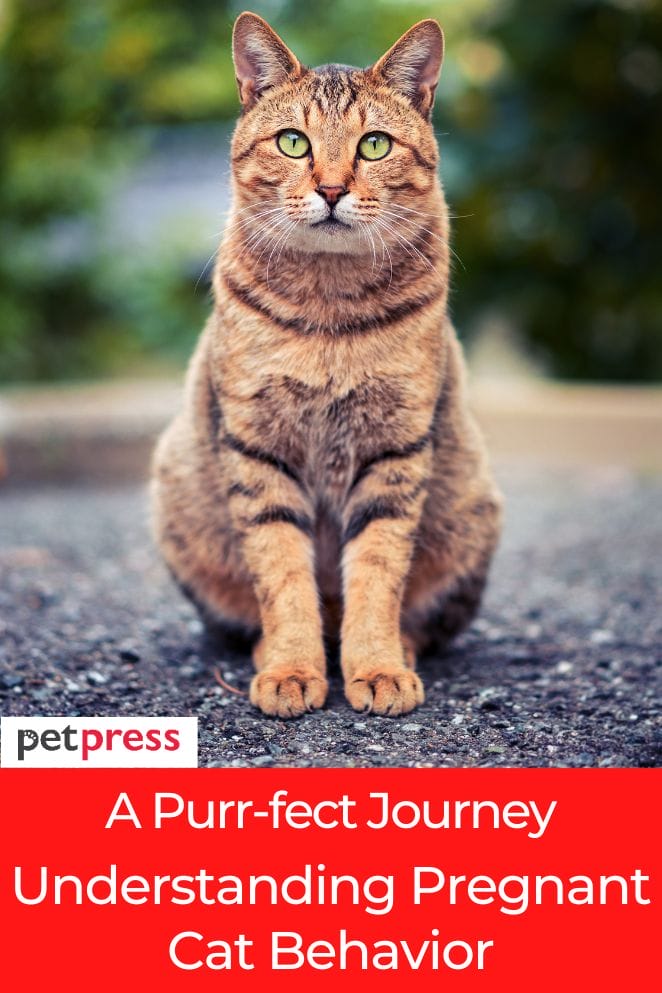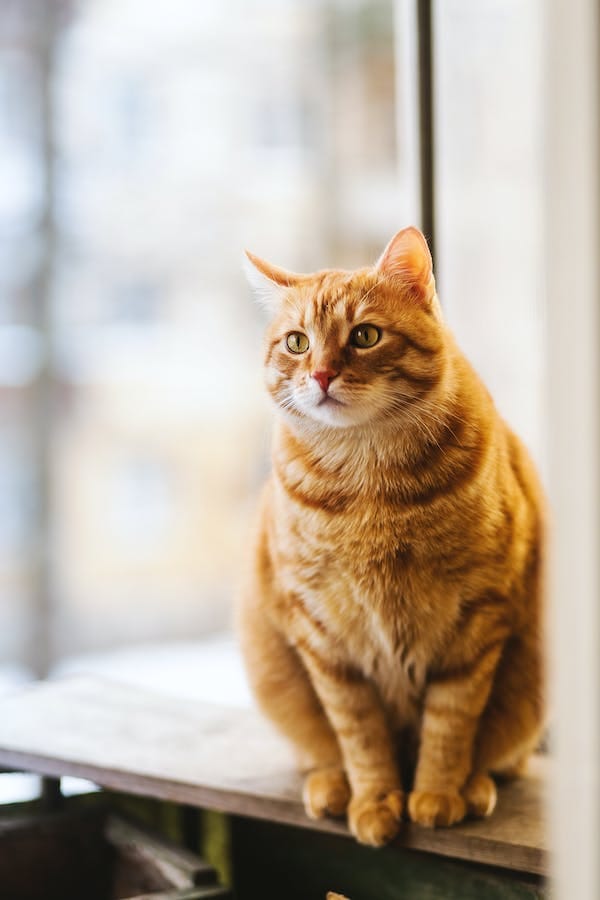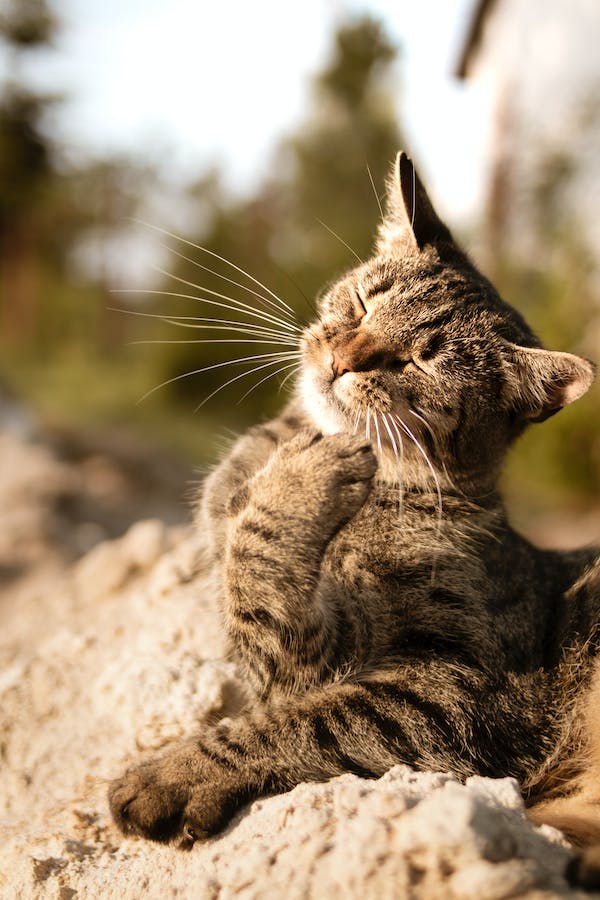
Hey there, fellow cat enthusiasts!
If you’ve ever wondered about the mysteries of pregnant cat behavior, you’re in for a treat. In this blog post, we’re going to unravel the fascinating world of expecting feline moms.
We’ll explore the signs that indicate a cat is pregnant, the duration of their gestation period, common behaviors you might notice, and how to provide the best care during this special time.
So, grab a comfy seat, and let’s embark on this wonderful journey through the world of pregnant cats.
What are the Signs that a Cat is Pregnant?
Detecting pregnancy in a cat is like deciphering secret cat codes. But here are some clues to look for:
Changes in nipples
One of the early signs of cat pregnancy is a change in the nipples.
They typically become larger and may take on a pinkish hue.
This transformation is a bit like the cat’s body preparing for the arrival of tiny guests – it’s a noticeable and physical change that can indicate pregnancy.
The nipples might also become more prominent and stand out from the surrounding fur.
Weight gain
As pregnancy progresses, you’ll likely notice your cat’s abdomen gradually expanding.
This is similar to a pumpkin growing in size.
It’s a relatively subtle change at first, but as the kittens develop and the pregnancy advances, the weight gain becomes more noticeable.
It’s essential to monitor this change, as rapid and excessive weight gain might indicate potential complications.
Increased appetite
Expecting mother cats often develop a heartier appetite.
They may seem more eager to eat and might even consume larger quantities of food.
This increase in appetite is a bit like them preparing for a grand feast, and it’s a common sign of pregnancy.
Providing extra nourishment and ensuring they receive a well-balanced diet is essential during this time to support both the mother and the developing kittens.
Behavioral changes
Pregnancy can bring about noticeable changes in a cat’s behavior.
Some cats become more affectionate and seek out extra attention from their owners.
They might display an increased desire for cuddling and petting.
On the flip side, pregnant cats can also experience mood swings and become more irritable or seek solitude at times.
These behavioral changes can be likened to human mood swings during pregnancy, reflecting the hormonal adjustments taking place.

How Long is the Gestation Period for Cats?
A cat’s gestation period, which is the duration of pregnancy, is indeed somewhat like a well-kept secret.
It’s a fascinating and critical phase during which a mother cat’s body undergoes significant changes to nurture and develop her growing kittens.
On average, the gestation period for cats lasts approximately 63 to 65 days or roughly two months.
However, it’s important to note that this timeframe can vary slightly from cat to cat, with some pregnancies lasting as few as 61 days and others extending to 67 days.
What are Some Common Behaviors of Pregnant Cats?
Pregnant cat behavior is like a mesmerizing dance, filled with unique moves. Here are some common behaviors:
Nesting instinct
Pregnant cats often display a strong nesting instinct as they approach their due date.
This behavior is akin to a parent setting up a nursery for their soon-to-arrive baby.
Expect your cat to start seeking out cozy, secure spots to create a safe haven for her kittens.
These chosen spots might be in quiet corners, closets, or any place where she feels protected.
Some cats may even ‘test’ several potential nesting sites before settling on the perfect one.
Increased grooming
You might notice your pregnant cat spending more time grooming herself than usual.
This behavior is somewhat like a mom-to-be pampering herself before the big day.
It’s her way of maintaining hygiene and preparing for the arrival of her kittens.
The increased grooming serves to keep her clean and comfortable for birthing and nursing.
It’s a sign of her maternal instincts at work, ensuring that she’s ready to care for her newborns with meticulous cleanliness.
Resting more
Pregnancy is an energy-demanding process, so don’t be surprised if your cat starts taking longer catnaps.
This behavior is similar to a pregnant woman needing extra rest to support the growth of her baby.
Expect your cat to rest more frequently and for extended periods.
She might seek out quiet and undisturbed places for her naps.
These restful moments are essential for her well-being and the health of her developing kittens.

How to Deal with Pregnant Cats?
Dealing with pregnant cats is like caring for a cherished friend. Here’s what you can do:
Provide a comfortable nest
One of the first things you can do for your pregnant cat is to offer a quiet, comfortable place for her to nest.
Think of it as creating a cozy maternity ward for her and her soon-to-arrive kittens.
Choose a secure and peaceful corner in your home and furnish it with soft, clean bedding.
A box with low sides, lined with towels or blankets, works well.
Ensure the nest is situated away from high-traffic areas and noise, allowing the cat to have privacy and a sense of security.
Balanced diet
A pregnant cat’s nutritional needs are different from those of non-pregnant cats.
To support her and her developing kittens, ensure she has access to nutritious, high-quality cat food.
Think of it as serving a hearty meal to an expecting mom.
It’s advisable to feed her a diet designed for pregnant or nursing cats, as it provides the extra nutrients and calories needed during this time.
Consult with your veterinarian to determine the best food and feeding schedule for your cat.
Vet visits
Regular check-ups with the veterinarian are essential during your cat’s pregnancy.
These visits allow the vet to monitor her health and the kittens’ progress.
It’s a bit like scheduling prenatal check-ups for an expectant human mother.
Your vet can provide guidance on the cat’s specific needs, address any health concerns, and provide advice on the impending birth and caring for the kittens.
Additionally, discuss vaccinations and deworming with your vet to ensure that the cat’s health is optimized for her pregnancy.

Minimize stress
A calm and peaceful environment is crucial for pregnant cats.
Stress can negatively impact her and the kittens, so it’s essential to minimize sources of stress in her surroundings.
Think of it as creating a serene oasis for an expectant mother.
Limit loud noises, sudden changes, and disruptions.
Ensure that other pets in the household are introduced to the situation gradually and under supervision to prevent conflicts.
A stress-free environment promotes the well-being of both the mother and her kittens.
Conclusion
Understanding and caring for a pregnant cat involves recognizing the unique signs and behaviors of feline pregnancy.
This knowledge allows you to create a comfortable and stress-free environment for your expectant cat.
Similar to human mothers, pregnant cats deserve the best care during this special time.
By providing a cozy nest, ensuring a balanced diet, regular vet check-ups, and a peaceful atmosphere, you can support your cat through this remarkable journey and ensure the well-being of both the mother and her soon-to-arrive kittens.


GIPHY App Key not set. Please check settings